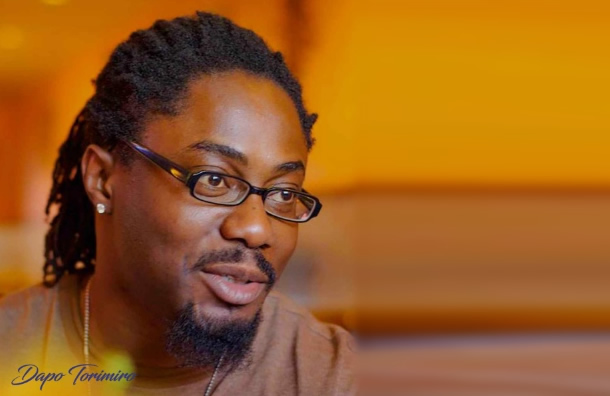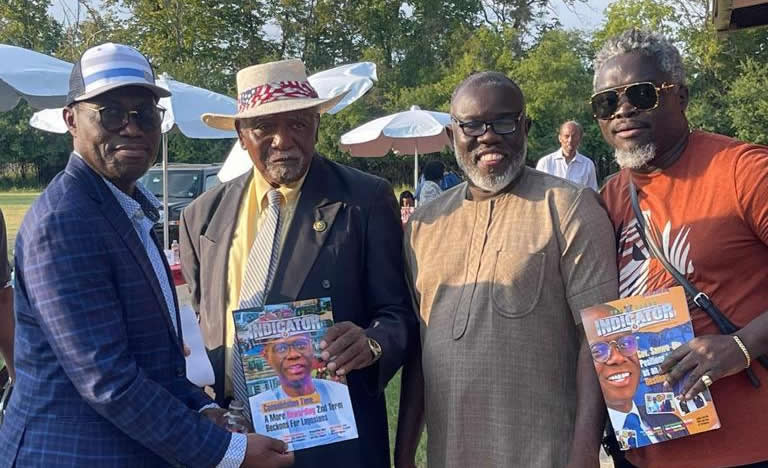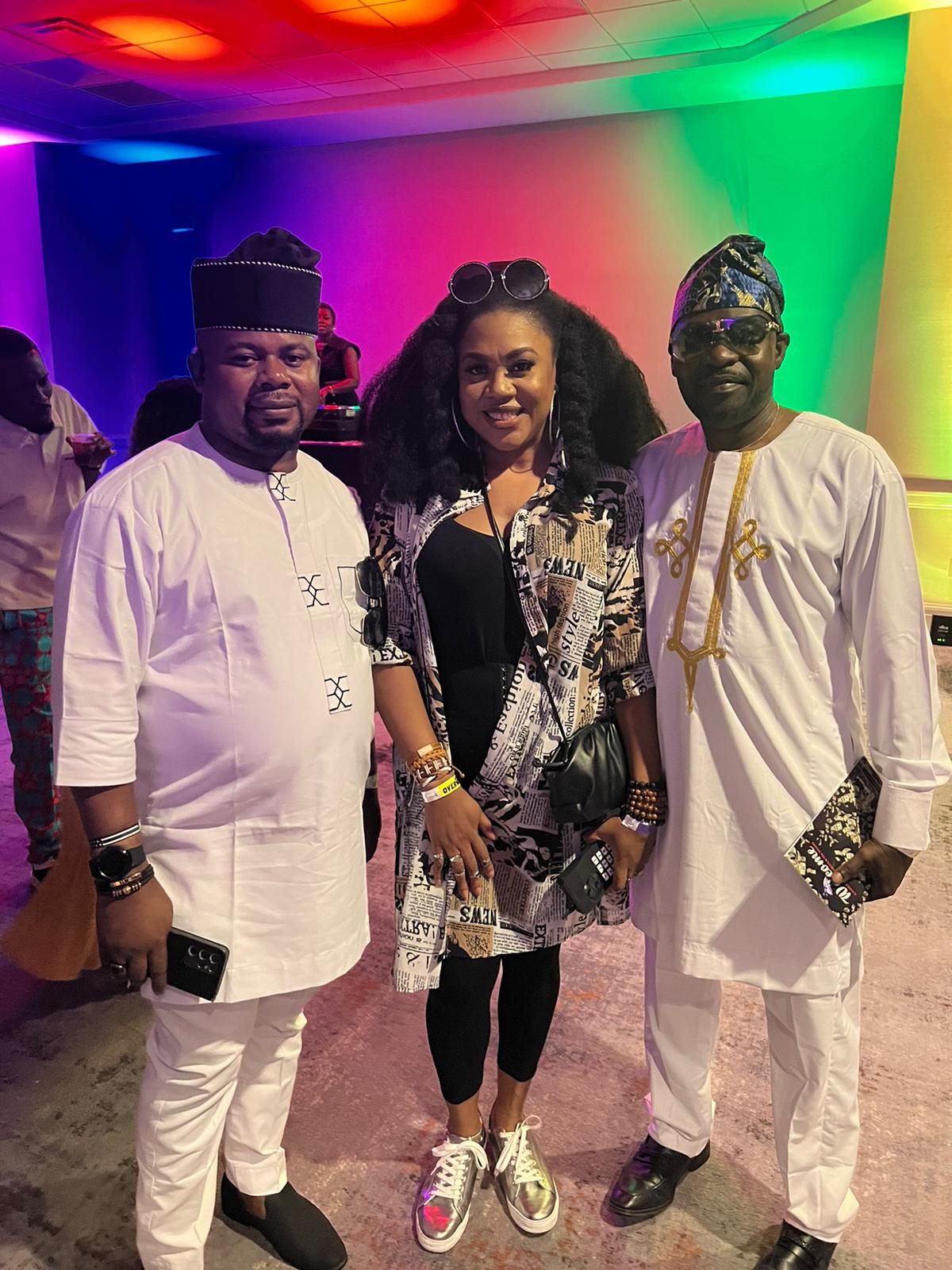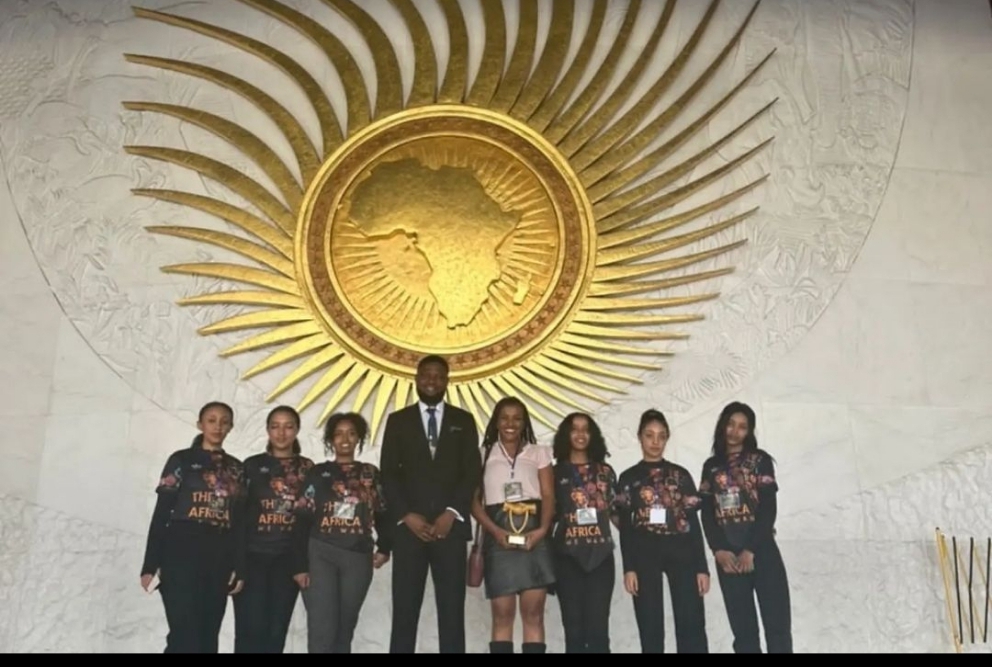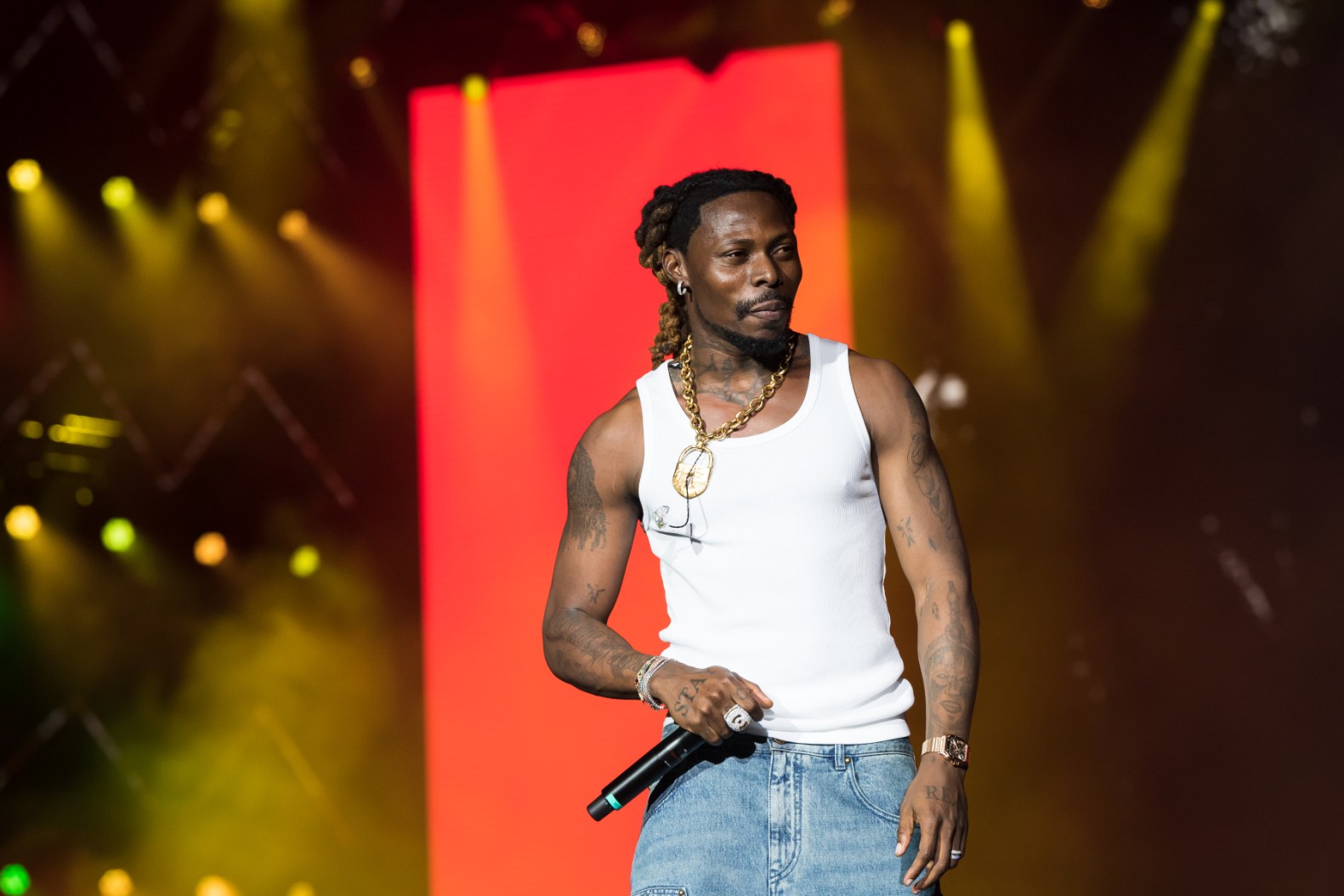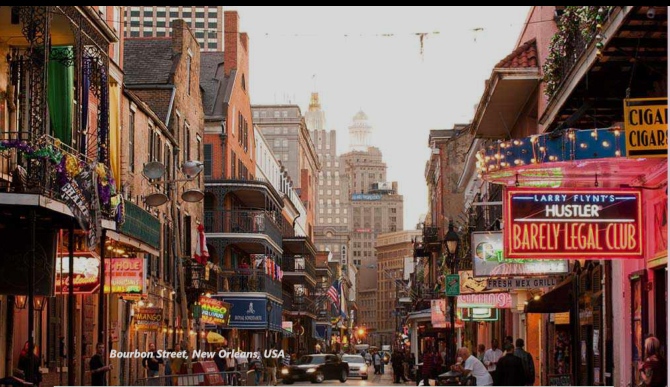
Lagos & New Orleans: A Tale of Two Kindred Cities
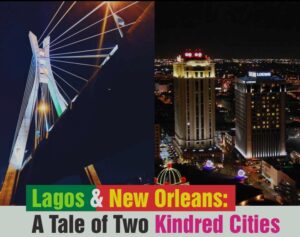
By Olatunji Oke
Separated by the expansiveness of the ocean S which touches both places on respective ends, it would appear that Lagos, Nigeria and New Orleans, USA have more than the Atlantic in common:
these two despite the seeming unconnectedness, could be sister-cities if one looked carefully enough owing to their respective histories, cosmopolitan outlook, being business hubs and of course, cultural centres of the two countries. In their respective countries, Lagos and New Orleans have elements that mirror each other – both are port cities that became a melting pot of various peoples, new world architecture and a history of triumph through more troubling times that saw both of them serve as colonial headquarters of the French and British.
New Orleans was founded in 1718 on grounds which historically belong to the native inhabitants of America and became a colony for France who faced intense opposition and conflicts from Spain and England who saw its vantage location as essential to the slave trade was prevalent at the time. After the end of the slave trade, New Orleans remained important to American society as it fought for civil rights.
Lagos’ history goes a little far back, having been in existence since the 15th country and was established by the Awori of the Yoruba people who were already there when the Portuguese traders first arrived in 1478.
Lagos also was a casualty of the horrific slave trade that plundered Africa until its abolishment in the 1860s. That said, its resilience through those years made it essential to other types of trade: palm oil, agricultural produce, rubber and much later, crude oil. The ports of Lagos to date the most valuable across the West African coast.
But beyond the aboriginal history of both cities, their unique placements as a confluence of many peoples have left a lasting mark and a casual drive through the Ninth Ward in New Orleans or Lagos Island will reveal several factors that make them stand out.
Architecture
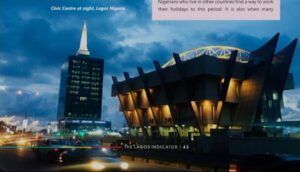
New Orleans has one of the most recognizable skylines and layouts anywhere in the world. Being the centre of Creole civilization, the architecture retains much of the multicultural mix that gave birth to the city. From French-inspired cottages and cathedrals to the townhouses that have featured in a thousand and one Hollywood movies, even people who are yet to visit New Orleans are attracted to the sheer beauty of it all. The city also has colonial-style mansions and manor houses carried over from a hundred years. That’s apart from the modern skyscrapers and complexes that dot the central business district.
Perhaps the most striking similarity between New Orleans and Lagos is the existence of areas that are direct vestiges of colonialism and the subsequent mix of cultures. The French Quarter in the heart of the city is the oldest and most historic district that brings in local and international tourists in the millions every year. In addition to its breathtaking buildings and cafes, it’s also home to thousands of artists and jazz performers. The charm of the French Quarter is second to none… except if you’re thinking of the Brazillian Quarters in Lagos.
Even before the transatlantic slave trade officially came to an end in the 1860s, many former enslaved peoples in Brazil were being freed or in more cases, started to buy themselves out; a great deal of them migrated back to the motherland and set up their community in Lagos.
Expectedly, they brought with them the cultures of the places they’d previously been which included the culture and architecture. A number of those buildings remain today, despite some having needed to give way due to old age and deterioration.
The mixture of the old and the new gives Lagos a feel that is unlike anywhere in Africa. There are multi-million dollar corporate buildings and residences of the same cost. Lagos is sprawling and breathtaking, while at the same time mindful of its culture and how it got to be Nigeria’s centre of excellence – more than thirty years since the federal capital city was relocated to Abuja.
Business
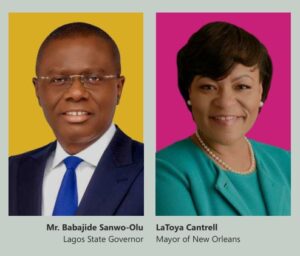
The most popular reputation of Lagos is that of a place where anybody can come to thrive. It is true: the spirit of Lagos is one of enterprise and trade, and every year, millions of people pack their bags and head to Lagos. It doesn’t matter if they’re coming to sell knick-knacks in traffic or starting a tech-based solution that will save the world, everybody comes to Lagos. The reason is not far-fetched: successive administrations have ensured that business remained integral to government policies. One would expect that businesses that have a manufacturing leg would perhaps situate them in the hinterland where it is assumed that raw materials and land are cheap. But the factories in Lagos keep springing up and underscore the fact that Lagos does mean business.
Tourism
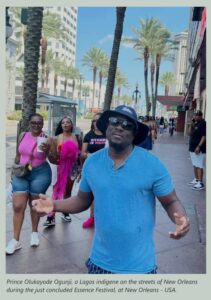
Mardi Gras? Fanti Carnival? Sports? Entertainment?
Lagos and New Orleans are where they happen. Mardi Gras is a globally known phenomenon and it’s synonymous with NOLA. For over three hundred years, residents of New Orleans have the carnival decked out in bright colours and singing all the way. These days, it’s not just New Orleanians that celebrate Mardi Gras; at least one and a half million tourists throng the city every year for that sole reason. In Lagos, the Fanti Carnival which was one of the imports of the Afro-Brazillian returnees in the 1800s was a staple for many years.
Although it hasn’t been mainstream for a couple of decades now, several families and neighbourhoods still find a way to celebrate with parades every year. But that’s not to say that’s all there is to Lagos tourism. Not by a country mile!
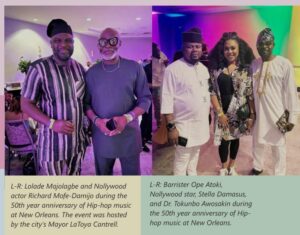
It is hard to point out any region in Nigeria where tourism is as established as Lagos. There are hundreds of concerts and dozens of festivals that hold there every year. The entire city has art galleries, restaurants, beaches, nightclubs, cinemas… the works! What’s more, Lagosians need very little reason to create festivities for themselves. All over the city and states, there are casual spots where people congregate after their work days and weeks and basically relax. In the last seven to eight years, the rise of Afrobeats has given birth to the popular Detty December season where the last month of the year is packed chock-full of entertainment activities. It has become the high point of the year and Nigerians who live in other countries find a way to work their holidays to this period. It is also when many Nigerian entertainment stars schedule their annual concerts and it’s not strange at all to have Burna Boy, Davido, Adekunle Gold, Tiwa Savage, Rema, and Wizkid among others have concerts on continuously succeeding days.
Of all the gifts that New Orleans gave to the world, the single greatest one is jazz. It is the music of several generations of African transplants to the new world, developed and delivered in the fields of Louisiana. Jazz comprises elements that are straight from Africa by the way of negro spirituals and blues. The call-and-response characteristic that forms jazz is reflective of African speech patterns – particularly of West African origin.
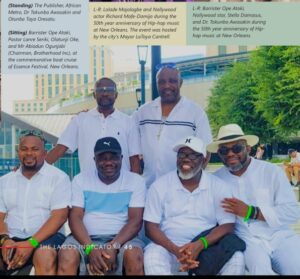
Whilst Afrobeats might be the current leader of contemporary urban music in Nigeria, it is a descendant of jazz music itself. One can draw a straight line from jazz to highlife to juju and to this current sound. Worthy of note, highlife music is a mix of jazz and traditional African melodies, and one hundred years later, Afrobeats is representative of those mesmerizing rhythms.
Speaking of festivals, the 2023 edition of Essence Festival was held in New Orleans from June 29 – July 3.
Since the inception of the festival in 1995, the city has hosted it every year except for 2005 (due to the hurricane) and 2020 (COVID lockdown). This year’s edition proved to pack an extra punch: it was a highlight of the African creative industry, featuring some of the biggest names from the continent across film, music and business. Throughout the weekend, there were various panels to discuss the state of affairs and the need for cross-cultural collaboration. Indicator Magazine was a guest of the Mayor of New Orleans Latoya Cantrell during the weekend and it provided a great avenue to find ways for Lagos and New Orleans to explore opportunities inherent in festivals such as this.
One of the issues discussed with Mayor Cantrell was how Africa’s soft power, especially Nigerian music and movies, could serve as a conduit for creativity between the two cities. This can be made possible through a well-groomed collaboration in arts, culture, and festivals such as this.
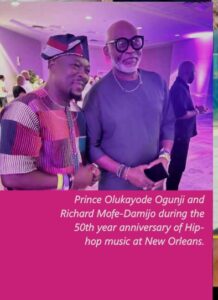
It’s just as well, as Lagos is where everything happens. It is the entertainment capital of not only Nigeria but the West African sub-region. The film industry which had long been regarded as subpar despite its enviable record of being the second largest (in terms of volume), is now enjoying a rush of global streaming companies.
Netflix, Amazon Prime and Showmax, the African competitor built by South Africa conglomerate Multichoice have injected millions of dollars in creating straight to consumer high budget films. The cinema circuit that is essentially rebuilt after Nigeria’s economic downturn during the military era has proven to be a solid model: the two highest-grossing films released within three years of each other have sold over one billion naira (approximately $1.5 million). It’s no mean feat for an industry that is predominantly bootstrapped where the average box office is around a fifth of that with a combined cinema screen number of less than eighty.
The music business has experienced more success for its players, so much so that nearly all the major global players have opened up outlets and offices in Lagos.
Universal Music, Def Jam, Empire, Sony Music and Warner Music have all gone in search of the magic that has taken Nigerian music from its early days in the street of Lagos to the biggest stages in the world. The new modern music industry was built by individuals who defied the odds to create a business where there had been none. From independent records like Kennis Music, Trybe Records and Dove Entertainment that pioneered the industry as it is known now to UK and US returnees like Don Jazzy, Dbanj and Banky W who returned home to innovate and push the culture further, acts like Davido, Burna Boy and Wizkid have grown in front of the world from Lagos-based musicians to becoming world stars.
At the recently concluded Essence Festival, hip-hop was on the front burner as the genre marks its fiftieth year of existence this year. It’s now a long way from the Bronx where the sound was invented during a summer party by DJ Kool Herc and its influence across the world is far-reaching. As such, the year’s event featured icons like Megan Thee Stallion, Lauryn Hill, Missy Elliott, Ice Cube, Lil Wayne, Lil Jon, Ice T, Jermaine Dupri, Doug E. Fresh, Ginuwine, Jagged Edge, Ludacris, Yo-yo and a ton of others, it was Wizkid’s appearance that exemplified how much the local acorn seed planted in Lagos few years ago has grown into a global oak. His set was on the final night of the festival and for forty minutes, he showed why he’s regarded as one of the biggest stars of African extraction.
Backed by a live band, his repertoire included some of his newer hits on his album More Love, Less Ego and interspersed it with classics such as One Dance which broke through American radio in 2016. The highlight of the night was when he brought the singer Tems for their Grammy-nominated collaboration, Essence. If Essence Festival needed an anthem, it needs not look further than the song of the same name, from the album MADE IN LAGOS. The audience’s excitement underscored the reputation of the song as the biggest cultural ambassador in recent times.
Nevertheless, it’s a safe bet that the ties being built by Lagos in New Orleans could only bode more good for these two cities. As long as these ties are secure and in place, it’s a given that more success will follow.

